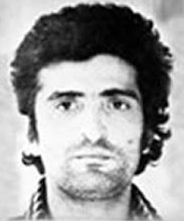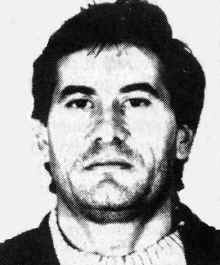The Camorra is an Italian Mafia-type criminal organization and criminal society originating in the region of Campania. It is one of the oldest and largest criminal organizations in Italy, dating to the 17th century. The Camorra's organizational structure is divided into individual groups also called "clans". Every capo or "boss" is the head of a clan, in which there may be tens or hundreds of affiliates, depending on the clan's power and structure. The Camorra is considered by the Italian Government to be the most violent, murderous and feared criminal organization in Italy. The FBI considers the Camorra to be among “the most powerful, technologically advanced, well-equipped, sophisticated and dangerous crime syndicates in the world” with a semi-militarized operation. Consequently, as Camorra clans act independently, they are more prone to feuding among themselves. The Camorra's main businesses are drug trafficking, racketeering, counterfeiting, and money laundering. It is also not unusual for Camorra clans to infiltrate the politics of their respective areas.
Sacra Corona Unita also known as fourth mafia is a Mafia-type criminal organization from the Apulia region in Southern Italy, and it is especially active in the areas of Brindisi, Lecce, and Taranto.

Antonio Gava was an Italian politician and member of Christian Democracy (DC). Son of the 13-time minister Silvio Gava, Antonio was one of the Christian Democratic Party's leading power-brokers in Campania over a 25-year period, beginning in 1968 and ending in 1993, when he was charged with membership of a criminal organisation. Together with Arnaldo Forlani and Vincenzo Scotti, he was the leader of DC's current known as "Alleanza Popolare".

Raffaele Cutolo was an Italian crime boss, leader of the Nuova Camorra Organizzata (NCO), an organisation he built to renew the Camorra. Cutolo had a variety of nicknames including 'o Vangelo, 'o Princepe, 'o Professore and 'o Monaco. Apart from 18 months on the run, Cutolo lived entirely in maximum-security prisons or psychiatric prisons after 1963. At the time of his death he was serving multiple life sentences for murder.
The Nuova Famiglia was an Italian Camorra confederation created in the 1970s and headed by the most powerful Camorra bosses of the time, Carmine Alfieri, the Nuvoletta brothers, Michele Zaza, Luigi Giuliano and Antonio Bardellino, to face Raffaele Cutolo's Nuova Camorra Organizzata, and affiliated with the Sicilian Mafia.

Carmine Alfieri is an Italian Camorra boss, who rose from Piazzolla di Nola to become one of the most powerful members of Neapolitan Camorra in the 1980s. As boss of the Alfieri clan, he was one of the most influential and powerful Camorra bosses from 1984 until his arrest in 1992. Alfieri's nickname is 'o 'ntufato, the angry one, thanks to the dissatisfied, angry sneer he wears constantly.

Vincenzo Casillo was an Italian Camorrista and the second in command of the Nuova Camorra Organizzata, a Camorra organization in Naples. His nickname was 'o Nirone.
The Nuova Camorra Organizzata was an Italian Camorra criminal organization founded in the late 1970s by a Neapolitan Camorrista, Raffaele Cutolo, in the region of Campania. It was also known by the initials NCO. The organization was established with the purpose of renewing the old rural Camorra, which dealt in contraband cigarettes and extortion schemes in the Neapolitan fruit market. To this end, Cutolo created a structured and hierarchical organization, in stark contrast to the traditional Camorra clans which are usually fragmented. The members of the NCO were often referred to by rival Camorristi and Italian law enforcement as "Cutoliani".
Pasquale D'Amico is a former Italian Camorrista who was a senior member of the Nuova Camorra Organizzata (NCO), a Camorra organization in Naples. His nickname was 'o Cartunaro. D'Amico defected from the NCO and subsequently became a pentito in 1983. Among the pentiti, D'Amico was one of the highest-ranking due to his position within the NCO. He was the first high-ranking NCO informant to reveal Neapolitan crime boss, Raffaele Cutolo links with the Calabrian 'Ndrangheta.
Luigi Giuliano is a former Italian Camorrista who was the boss of the powerful Giuliano clan based in the district of Forcella, Naples. He had multiple nicknames including "'o rre" and "Lovigino", which is an amalgamation of Luigi and love. In 2002, he decided to collaborate with Italian law enforcement and became a pentito, a co-operating witness against organised crime.

Antonio Bardellino was a powerful Neapolitan Camorrista and boss of the Casalesi clan, having a prominent role in the organized crime in the province of Caserta during the 1980s. He was one of the last of the old-style Camorra godfathers.

Maria Licciardi is an Italian criminal affiliated with the Camorra, head of the Licciardi clan, and one of the bosses of the Secondigliano Alliance. She was one of the most powerful bosses of the Camorra in the city of Naples from 1993 until her arrest in 2001.
The Lo Russo clan was a Neapolitan Camorra clan operating on its territory within the city of Naples, concentrated specifically in the area of Miano, whose control extended throughout numerous neighborhoods in the north of the city for more than three decades. Since the fall of all the Lo Russo brothers, and the numerous arrests of most of its affiliates, the organization is considered overthrown.

The Nuvoletta clan was a powerful Neapolitan Camorra clan operating from the town of Marano di Napoli, situated on the northern outskirts of the city of Naples, southern Italy. The Nuvolettas belonged to a new style of Camorra, one that had the dimensions of a large corporation, and considered much more entrepreneurial. The clan was affiliated with several Sicilian Mafia families and was considered one of the most powerful Camorra clans between the 1970s and 1990s, however, since the death of its historical leaders and the large number of arrests and seizures made by the Italian police, the clan was succeeded by the Polverino and Orlando clans, both families with great degree of kinship with the Nuvoletta family.

Assunta "Pupetta" Maresca was an Italian criminal who was a well-known figure in the Camorra. She made international newspaper headlines in the mid-1950s when she killed the murderer of her husband in revenge.

Pasquale Scotti is an Italian criminal and boss of the Camorra—a Mafia-type organisation in Naples and Campania—involved in the Nuova Camorra Organizzata (NCO), headed by Raffaele Cutolo.
Lorenzo Nuvoletta was the head of the Nuvoletta clan, a Neapolitan Camorra organization that operated from the town of Marano di Napoli, situated on the northern outskirts of the city of Naples. Nuvoletta was considered one of the most powerful bosses in the entire Camorra from the 1970s to the early 1990s.
The Giuliano clan was a powerful Neapolitan Camorra clan that had its base in the area of Forcella, in Naples. Its sphere of influence extended to all the centre of the city of Naples for over four decades.
The Società foggiana, also known as Mafia Foggiana and the fifth mafia, is a mafia-type Italian organized criminal organization and criminal society operating in a large part of the Province of Foggia, including the city of Foggia itself, and having significant infiltrations also in other Italian regions. Currently, it is considered one of the most brutal and bloody of all the organized crime groups in Italy—there was about one murder a week, one robbery a day and an extortion attempt every 48 hours in Foggia province in 2017 and 2018. These were wrongly reported as the work of the Sacra Corona Unita by news media unaware of the new independent mafia in Foggia province. "But that wasn't the case. We are witnessing what should be called a fifth mafia, independent of the Sacra Corona Unita", according to Giuseppe Volpe, a prosecutor and anti-mafia head of Bari.









